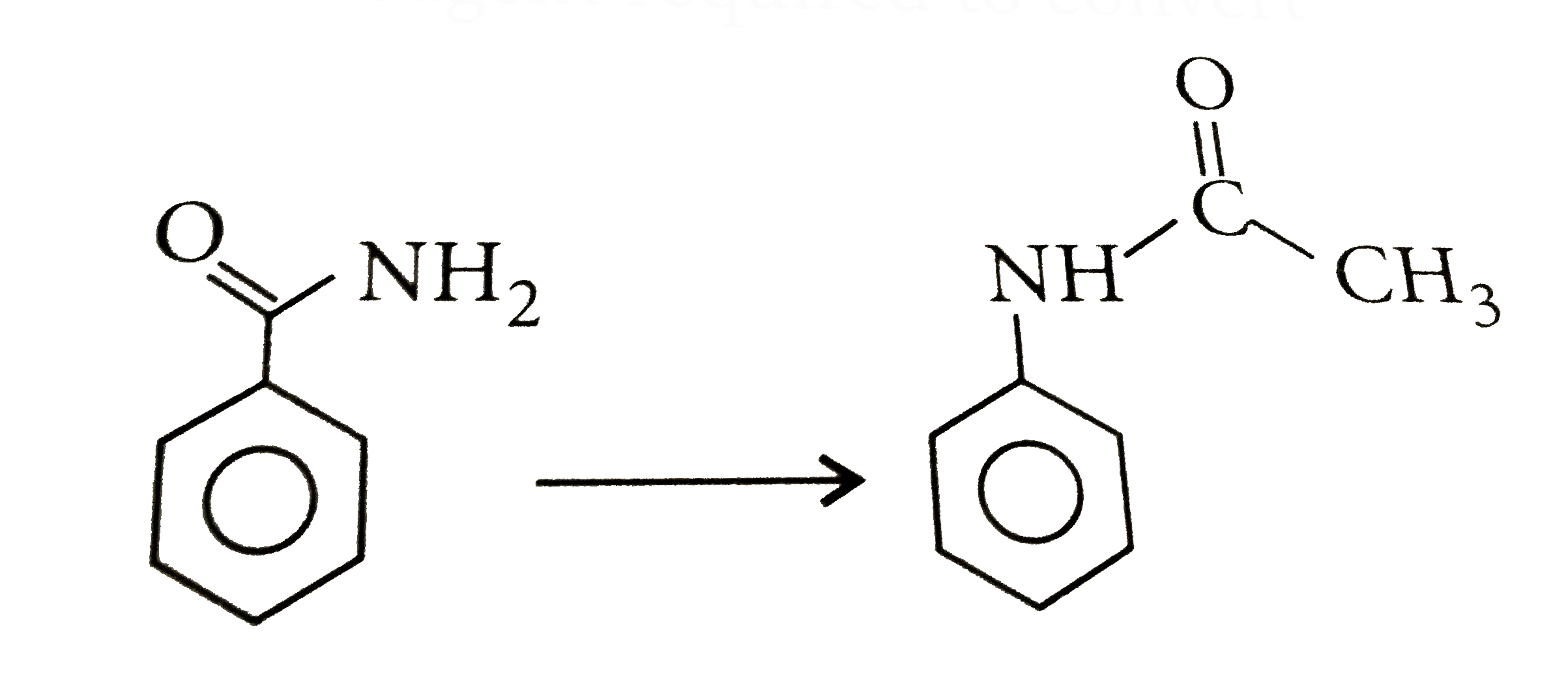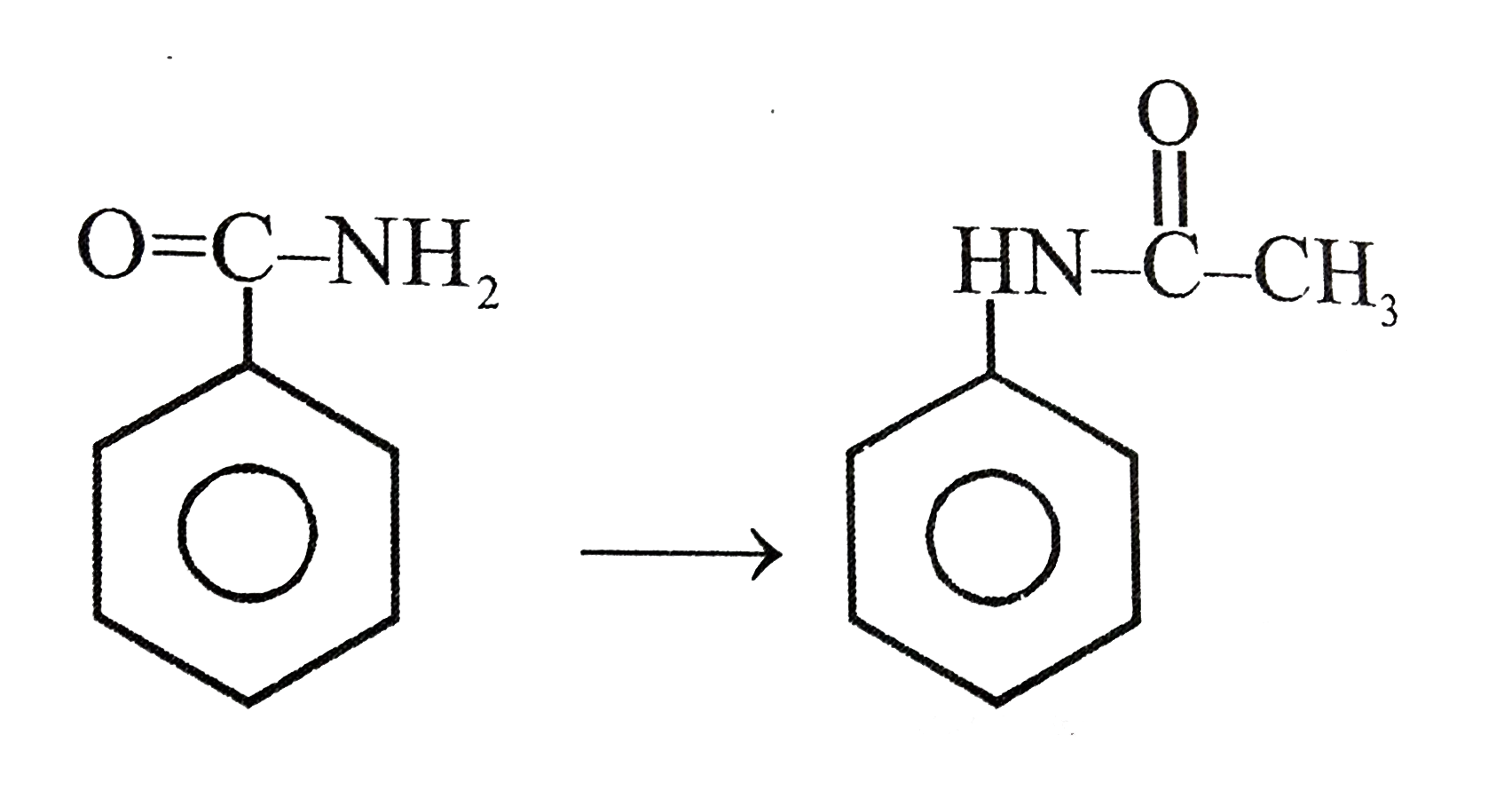Which reagent directly converts carboxylic acids to alcohols?
To solve the question of which reagent directly converts carboxylic acids to alcohols, we can follow these steps:
Step 1: Understand the Reaction
Carboxylic acids (RCOOH) can be converted to alcohols (RCH2OH) through a reduction reaction. In this process, the carboxyl group (-COOH) is reduced to a hydroxyl group (-OH).
Step 2: Identify the Reducing Agent
The most common reagent used for the reduction of carboxylic acids to alcohols is Lithium Aluminium Hydride (LiAlH4). This reagent is a strong reducing agent that effectively reduces carboxylic acids to their corresponding alcohols.
Step 3: Write the Reaction
For example, when acetic acid (CH3COOH) is treated with Lithium Aluminium Hydride, the reaction can be represented as follows:
CH3COOH+LiAlH4→CH3CH2OH
Here, acetic acid is converted to ethanol (CH3CH2OH).
Step 4: Conclusion
Thus, the reagent that directly converts carboxylic acids to alcohols is Lithium Aluminium Hydride (LiAlH4).
---
Carboxylic acids (RCOOH) can be converted to alcohols (RCH2OH) through a reduction reaction. In this process, the carboxyl group (-COOH) is reduced to a hydroxyl group (-OH).
The most common reagent used for the reduction of carboxylic acids to alcohols is Lithium Aluminium Hydride (LiAlH4). This reagent is a strong reducing agent that effectively reduces carboxylic acids to their corresponding alcohols.
For example, when acetic acid (CH3COOH) is treated with Lithium Aluminium Hydride, the reaction can be represented as follows:
Thus, the reagent that directly converts carboxylic acids to alcohols is Lithium Aluminium Hydride (LiAlH4).
Topper's Solved these Questions
- ALDEHYDES, KETONES AND CARBOXYLIC ACIDSBook:ICSEChapter:ALDEHYDES, KETONES AND CARBOXYLIC ACIDSExercise:EXERCISE (PART-II DESCRIPTIVE QUESTIONS) ( SHORT QUESTIONS)
Explore 581 Videos
- ALDEHYDES, KETONES AND CARBOXYLIC ACIDSBook:ICSEChapter:ALDEHYDES, KETONES AND CARBOXYLIC ACIDSExercise:ISC EXAMINATION QUESTIONS (PART-I OBJECTIVE QUESTIONS) (FILL IN THE BLANKS)
Explore 27 Videos
- ALDEHYDES, KETONES AND CARBOXYLIC ACIDSBook:ICSEChapter:ALDEHYDES, KETONES AND CARBOXYLIC ACIDSExercise:EXERCISE (PART-I OBJECTIVE QUESTIONS)
Explore 303 Videos
- ALCOHOLS, PHENOLS AND ETHERS Book:ICSEChapter:ALCOHOLS, PHENOLS AND ETHERS Exercise:ISC EXAMINATION QUESTIONS
Explore 25 Videos
- APPENDIX II ( TYPICAL CONVERSIONS)Book:ICSEChapter:APPENDIX II ( TYPICAL CONVERSIONS)Exercise:AROMATIC CONVERSIONS
Explore 98 Videos
Similar Questions
Knowledge Check
Which of the following reagents cannot be used for the reduction of carboxylic acid to alcohol?
ANaBH4BH2 and Pt catalystCLiAlH4DNaBH3CN
The reagent required to convert

View Solution
Carboxylic acid (A) is:
View SolutionWhich reagent can convert acetic acid into ethanol?
View SolutionThe reagents needed to convert :

View SolutionWhich of the following methods are used for the conversion of carboxylic acids into acid chlorides
(RCOOH→RCOCl)?
View Solution
Which reagent (X) is used to convert I to II
View SolutionStatement -1 Phenols cannot be converted into esters by direct reaction with carboxylic acids whereas alcohols can be
Statement -2 This is due to the fact that the esterification reaction is exothermic for alcohols but slightly endothermic for phenols.
View Solution


